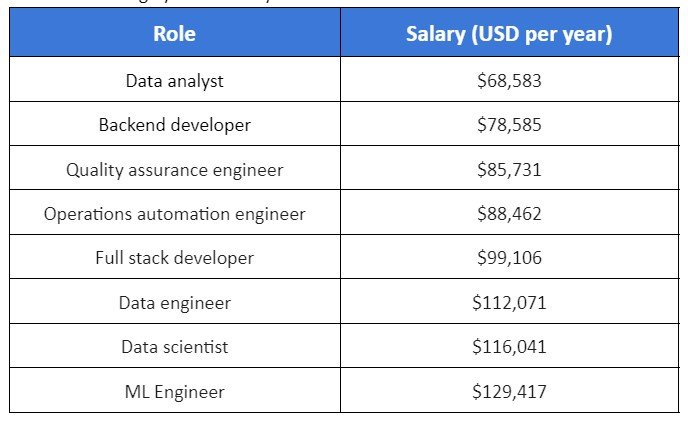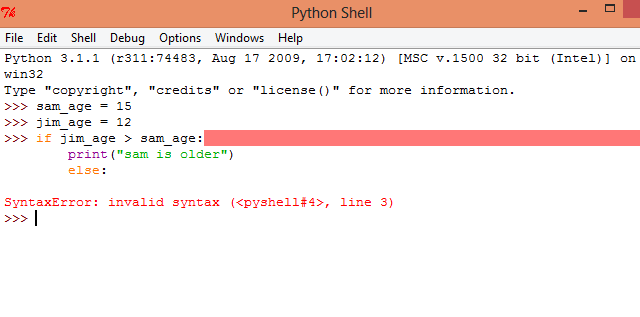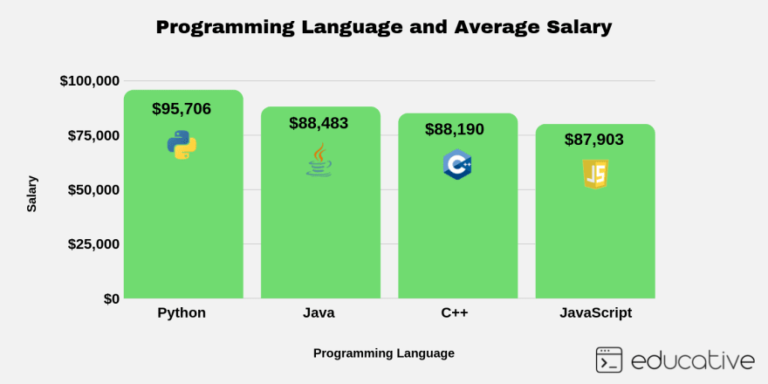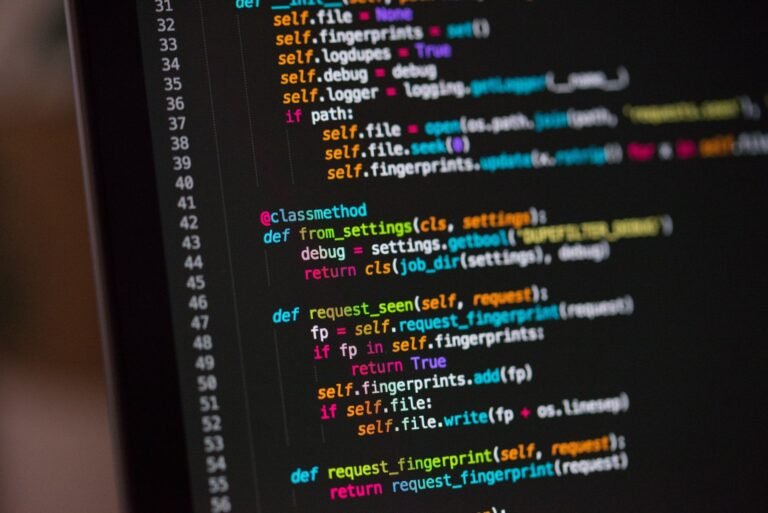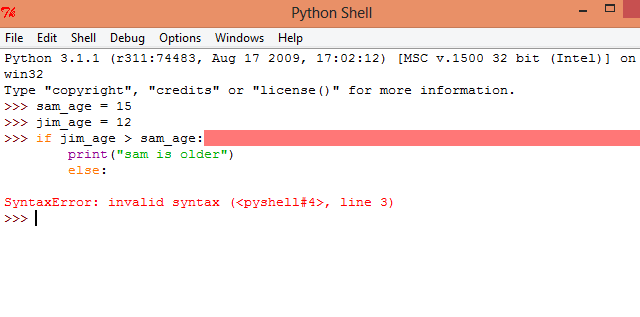How Long Does It Take to Learn Python for a Beginner: Quick Guide
A beginner can learn the basics of Python in about 6-8 weeks. Mastery requires several months to years of practice.
Python is one of the most popular programming languages today. Its simple syntax and readability make it an excellent choice for beginners. Many people start with Python due to its versatility in web development, data analysis, artificial intelligence, and more.
Python has a vast community and numerous learning resources, which significantly aid the learning process. Beginners can quickly grasp fundamental concepts such as variables, loops, and functions. With consistent practice and dedication, one can build a solid foundation in Python within a short time. Starting with small projects can help solidify these concepts and enhance coding skills.

Credit: mikkegoes.com
Factors Influencing Learning Time
Learning Python can be exciting and rewarding. Several factors affect how quickly a beginner can learn Python. Let’s explore these factors in detail.
Prior Programming Experience
Having prior programming experience can significantly reduce the time needed to learn Python. Those familiar with other programming languages understand basic concepts, making the transition smoother.
Here’s a simple comparison:
| Experience Level | Estimated Learning Time |
|---|---|
| No Programming Experience | 3-6 Months |
| Some Programming Experience | 1-3 Months |
| Experienced Programmer | 2-4 Weeks |
Available Study Time
How much time you can dedicate to learning Python greatly influences your progress. More study time means faster learning.
Consider these scenarios:
- Full-time learners: Can spend 4-6 hours daily on Python. They may become proficient in 1-2 months.
- Part-time learners: Dedicate 1-2 hours daily. They may need 3-6 months to become comfortable with Python.
- Weekend learners: Spend 5-6 hours on weekends. They might take 6-12 months to learn Python.
Learning Resources
The type of learning resources you choose also plays a crucial role. High-quality resources can accelerate your learning journey.
Here are some popular options:
- Online Courses: Platforms like Coursera, Udemy, and edX offer structured courses with video lessons.
- Books: Titles such as “Automate the Boring Stuff with Python” and “Python Crash Course” are excellent for beginners.
- Interactive Platforms: Websites like Codecademy and freeCodeCamp provide hands-on coding exercises.
- Community Support: Joining forums like Stack Overflow and Reddit can help you solve problems quickly.
Choosing the right mix of resources can streamline your learning process.
Setting Realistic Goals
Learning Python can be exciting and challenging. Setting realistic goals helps you stay on track. It keeps you motivated and prevents burnout. Let’s break down your goals into two categories: short-term and long-term. This helps you manage your time and expectations effectively.
Short-term Goals
Short-term goals are small, achievable milestones. They give you quick wins and keep you motivated. Here are some examples:
- Learn basic Python syntax and keywords.
- Understand data types like strings, integers, and lists.
- Write simple programs to solve basic problems.
- Get comfortable with Python’s interactive shell.
These goals can often be achieved within a few weeks. They lay the foundation for more complex concepts. You can use online tutorials, books, or courses to reach these goals.
Long-term Goals
Long-term goals require more time and effort. They often take months to achieve. Examples include:
- Master advanced Python topics like object-oriented programming.
- Build a portfolio of Python projects.
- Learn to use popular libraries like Pandas and NumPy.
- Prepare for a Python certification exam.
These goals are more challenging but also more rewarding. They can lead to career opportunities and deeper knowledge. Stay patient and consistent. Celebrate small achievements along the way.
Here’s a simple table to summarize these goals:
| Goal Type | Examples | Time Frame |
|---|---|---|
| Short-term | Basic syntax, data types, simple programs | Weeks |
| Long-term | Advanced topics, project portfolio, libraries | Months |
Setting realistic goals is key to learning Python effectively. Break your journey into manageable steps. Enjoy the process and keep learning!
Beginner-friendly Learning Paths
Learning Python can seem daunting for beginners. With the right resources, it becomes much easier. Here, we’ll explore some beginner-friendly paths to master Python.
Online Courses
Online courses are perfect for beginners. They provide structured learning and interactive lessons. Many platforms offer Python courses, such as:
- Coursera: Offers courses from top universities.
- Udemy: Provides affordable courses with lifetime access.
- edX: Features courses from renowned institutions.
These platforms often include quizzes, projects, and forums. This helps in reinforcing the learning process.
Books And Tutorials
Books and tutorials are valuable for self-paced learning. They allow you to learn at your own speed. Some recommended books for beginners include:
- “Python Crash Course” by Eric Matthes: Great for hands-on learning.
- “Automate the Boring Stuff with Python” by Al Sweigart: Focuses on practical applications.
- “Python for Kids” by Jason R. Briggs: Simplifies concepts for younger learners.
Online tutorials are also beneficial. Websites like Real Python and Python.org offer free, detailed guides. These resources cover basic to advanced topics, making them ideal for continuous learning.
Practical Hands-on Practice
Learning Python involves more than just reading books and watching tutorials. Practical hands-on practice is crucial. It helps cement your understanding and builds your confidence.
Coding Exercises
Coding exercises are short problems you solve with code. They help you understand basic concepts. Here are some benefits of coding exercises:
- Improve problem-solving skills
- Learn syntax and basic functions
- Build coding speed and accuracy
Start with simple exercises. Try solving problems on platforms like Codewars or LeetCode. These platforms offer structured challenges for beginners. Consistent practice will make you more comfortable with coding.
Building Small Projects
Building small projects is another way to get hands-on practice. Projects help you apply what you’ve learned. They also give you a sense of accomplishment. Here are some project ideas for beginners:
- Simple calculator
- To-do list app
- Basic web scraper
Working on projects can be fun and educational. It helps you understand how different parts of code work together. You can use platforms like GitHub to showcase your projects.
| Activity | Estimated Time |
|---|---|
| Coding Exercises | 1-2 hours daily |
| Building Projects | 3-5 hours weekly |
Combining coding exercises and small projects will make your learning journey effective. You will see progress in a few weeks. Keep practicing and stay curious.
Community And Support
Learning Python can be a rewarding journey. One key factor in speeding up this journey is the community and support you receive. Engaging with fellow learners and experts can significantly enhance your learning experience. You can find support in many places, including forums and meetups.
Joining Forums
Joining online forums can help you learn Python faster. Forums are places where people ask and answer questions. They can be very helpful for beginners.
Some popular Python forums include:
- Stack Overflow: A large community where you can ask any Python question.
- Reddit: Subreddits like r/learnpython are great for beginners.
- Python.org: The official Python website has a community section.
In these forums, you can:
- Ask questions when you are stuck.
- Read answers to common Python problems.
- Find coding buddies to study with.
Attending Meetups
Meetups are local gatherings where people talk about Python. They offer a chance to meet other Python learners and experts in person.
Benefits of attending meetups include:
- Networking: Meet people who can help you learn.
- Workshops: Hands-on sessions to practice coding.
- Speakers: Learn from Python experts and their experiences.
To find meetups near you, you can use websites like:
Attending meetups can make your Python learning journey more enjoyable and effective.
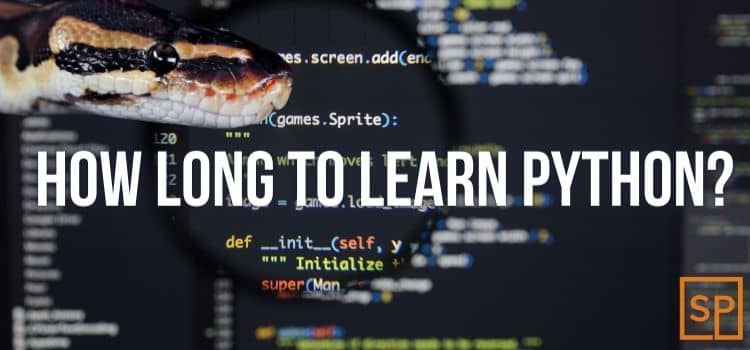
Credit: simpleprogrammer.com
Typical Learning Timeline
Understanding the typical learning timeline for mastering Python helps set realistic goals. This guide breaks down the learning process into three main phases. Each phase focuses on different aspects of the language. Let’s explore how much you can achieve in these timeframes.
First Month
In the first month, most beginners focus on the basics. This includes:
- Installing Python
- Learning basic syntax
- Understanding data types
- Writing simple programs
During this time, practice is key. Set aside time each day to code. Use online resources and tutorials. Within a month, you will grasp basic concepts and feel more confident.
First Three Months
By the third month, you should have a stronger foundation. You will start learning more advanced topics:
- Functions and loops
- Basic data structures like lists and dictionaries
- File handling
- Basic debugging
Projects can help solidify your knowledge. Try building a small project. This could be a simple game or a data analysis script. Projects make learning fun and practical.
First Six Months
After six months, you will dive into more complex areas. These may include:
- Object-Oriented Programming (OOP)
- Advanced data structures
- Libraries and frameworks
- APIs and web scraping
At this stage, working on larger projects is beneficial. Join coding communities to share and learn. Continuous practice and project-building are essential. By now, you should feel comfortable with Python.
Tips For Staying Motivated
Learning Python can be exciting but challenging. Staying motivated is key to success. Here are some tips to keep your motivation high while learning Python.
Tracking Progress
Tracking your progress helps you see how far you’ve come. Use a journal or an app to log your daily practice. Write down what you learned each day. This will help you stay focused and see your growth.
- Set small, achievable goals.
- Use a calendar to mark your study days.
- Review your notes weekly to see improvements.
Celebrating Milestones
Celebrate your milestones to stay motivated. Reward yourself for completing tasks. This keeps the learning process fun and engaging.
- Finish a Python course? Treat yourself to a movie.
- Write your first script? Share it with friends.
- Complete a project? Enjoy a special meal.
Keep a list of milestones and rewards. This will encourage you to keep going.

Credit: www.youtube.com
Frequently Asked Questions
How Long To Learn Python Basics?
Learning Python basics typically takes 4-6 weeks. This depends on your dedication and prior programming experience.
Can A Beginner Learn Python In A Month?
Yes, a beginner can learn Python in a month. It requires consistent practice and daily study.
Is Python Easy For Beginners?
Yes, Python is easy for beginners. Its simple syntax and readability make it accessible to new programmers.
How Many Hours A Day To Learn Python?
Dedicating 1-2 hours daily to learning Python can yield good progress. Consistency is key.
Conclusion
Learning Python as a beginner can be a rewarding journey. The time it takes varies for everyone. Dedicate consistent practice and patience. Utilize online resources and community support. Soon, you will master Python basics and beyond. Embrace the learning process and enjoy coding success!

